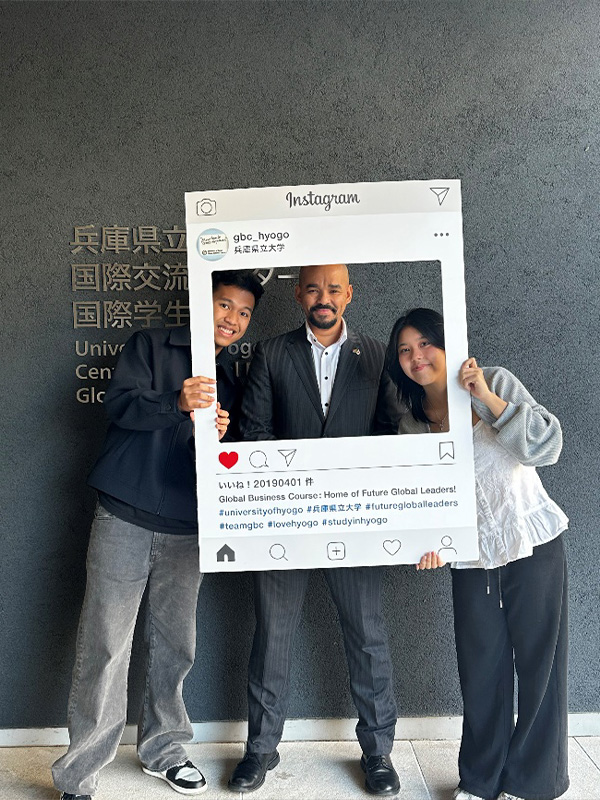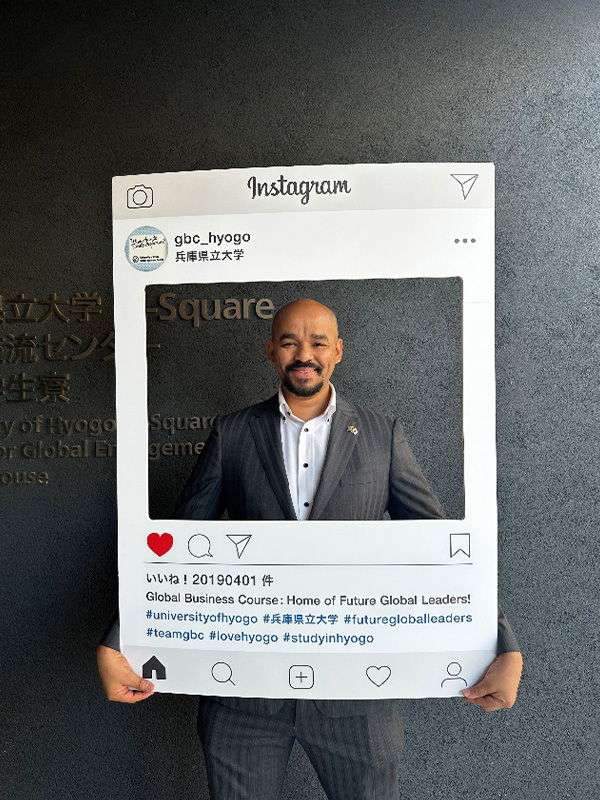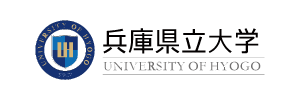Topics
GBC Resident Assistant (RA) Interviews with GBC Professors #7 - Interview with Professor Jeremy Ryan September
Date: November 22, 2023
Place: Global House, University of Hyogo


Question 1
Self-introduction and why September? How and why did you come to Japan?
Professor Jeremy Ryan September :
I'm Jeremy September from South Africa. I have been living in Japan for about 12 or 13 years. I didn't understand or know the story of my name until I came to Japan because in Cape Town where I'm from, there are many people with month names like September, October, and November. We have those names for our surnames because it is normal. When I came to Japan, a lot of Japanese people asked me about it, and I started to research it online.
It turns out that 350 years ago, at the same time when the Dutch were colonizing Cape Town or South Africa, some people in Indonesia were sent to South Africa as either slaves or indentured servants. Some of these people came from India as well. So, when they arrived in South Africa, the colonizers did not want them to stay in the same groups. Therefore, they separated them and took away their family name, then gave them new names from the month they arrived in Cape Town.
That's a crazy story, and amazingly I didn't know about it. Recently they started to make a museum for all those people in Cape Town, and it became a touching story. When I started researching about it, I realized that one of my ancestors came to South Africa in a really bad way. But, when I think about the way my life turned out, it's a happy ending for my family line. For a lot of South Africans, we do not think about it anymore.
One thing that makes me interested is a couple of times I've met Indonesian people, it is fascinating. If you come to Cape Town, you will see so many people in Cape Town and they look Indonesian. When they talk in English, even their accent is similar to the Indonesian English accent. There is also a very strong Islamic influence in Cape Town. (It's not only Indonesian but also Malaysian people.) That is why my name is September.
Question 2
What is your field of research? Also, what inspires you to do research in that field?
Professor Jeremy Ryan September :
My original plan was just to come to Japan for one year. I was very busy with my job, and it was about 2007. I was working freelance, and I'm going from one job to another. Then, I wanted to take a break for one year from this. I actually always wanted to try teaching, but I had never taught before.
I started teaching English, and when I arrived in Japan, I taught English as an assistant language teacher. It was very easy. I really loved the job, and I loved studying (online) as well, so I stayed for five more years.
Because I really enjoy teaching, my plan after that was to travel to Korea and Saudi Arabia to teach. I thought it would also be a great way to travel, but then during my time of teaching English, the financial collapse happened in around 2008, and 2009. Therefore, that's the thing that made me interested in finance and money, so I started researching about that. Later, I met my wife. She suggested that instead of teaching English, I should apply for Tohoku University on MEXT scholarship. So, that is how I got into this research field.
Originally, I got interested in the economic collapse, and I was curious about the nature of money, so I did a lot of reading about that. I uncovered an interesting period of economic history which is the great depression in the 1930s. At that time, the towns and cities around the world were struggling economically because banks were not loaning money. It is interesting how small towns create their own money, just to use in their towns. Even more surprisingly, some of these experiments, most notably the Worgl experiment in Austria, were very successful. This kind of currency helped this town and city to survive in economic collapse. Thus, I became interested in that idea.
From there, I became interested in regional business and community business. I like the idea of regional or economic development just because of how empowering it is. I also grew up in an environment where we were very much involved in the community world. I likewise love the sense of empowerment that comes from helping your local community. Moreover, if you do national policy, it might take four, five or even 10 years before you begin to realize its success or effect, and that's why I enjoy regional economic development.
Question 3
What is the most challenging thing being a professor here?
Professor Jeremy Ryan September :
That's easy to answer. It's the bilingual nature of a job. My Japanese is intermediate, but it's improving. In contrast, Japanese professors sometimes have to teach classes in English, and teaching economics business or complicated topics in English is difficult.
For foreign professors, we have to do a lot of admin in Japanese. That part of the job is difficult for me, and also inspiring because we have many, or some professors, who have neither English nor Japanese as their first language. And they are doing an excellent job. So, I think that is the most challenging part and something I always try to improve on.
Question 4
What distinctive academic programs or research opportunities does this university offer to make it an attractive destination for a diverse range of students?
Professor Jeremy Ryan September :
In GBC, one of the biggest strengths is that it has both Japanese and international students, so it creates an environment where internationalization can be cultivated quite a lot. For Japanese students where they can go to the Philippines for language training, and the international students have a lot of great experiences on the program to experience Japan. Particularly, for international students, we offer MEXT scholarships, and that is nice. However, what people don't realize is, how rare it is that a university can offer the MEXT scholarship.
When I came here, I think I was told by Gakumuka (student affairs) that only about 10 out of 800 universities in Japan can offer it for undergraduate level.
In the program to experience Japan, we worked with a Japanese Wagashi companies quite a lot, in terms of learning Japanese expertise and learning how they manage their companies. This year, we went to the SPring-8, the world’s largest third-generation synchrotron radiation facility. There are only four of these synchrotrons in the world which are used by the government and for science to use for better causes. It's got a wide range of implementations. So, I think as a university, we expose the students to quite a lot, both Japanese and international students. Japanese students get the kind of international environment they might not find in Japan. International students get the bridge into Japan through language learning and exposure to Japanese culture and business.
Question 5
I heard that you have been living in Japan for a long time, what is your advices for international students living in Japan?
Professor Jeremy Ryan September :
My advice is kinda obvious, which is to learn the language. Because when I came to Japan, I started to study Japanese immediately, and I got JLPT N2 around 2012. It is good to put it on your CV so it looks like you can speak Japanese. But, much more important is you have to speak it! Also, I think a lot of international students learning Japanese either get a part-time job where they need to speak Japanese or are involved in some activities where they have to speak Japanese.
If you want to improve your Japanese, just make friends in an uncomfortable situation where you need to speak. For me, the biggest improvement in my Japanese is because I got my N2 in 2012. Then, I went back to South Africa for two years, and my Japanese level dropped. Still, when I got back, I had to improve my Japanese to do my PhD because I had to interview Japanese companies, so it forced me to improve. In short, my advice is to put yourself in a difficult situation in a way you have no choice but to speak Japanese.
Interview by:
Global House Resident Assistant Lanta Suwanlikit (Thailand)
Global House Resident Assistant Radhi Kalifa Iman (Indonesian)




